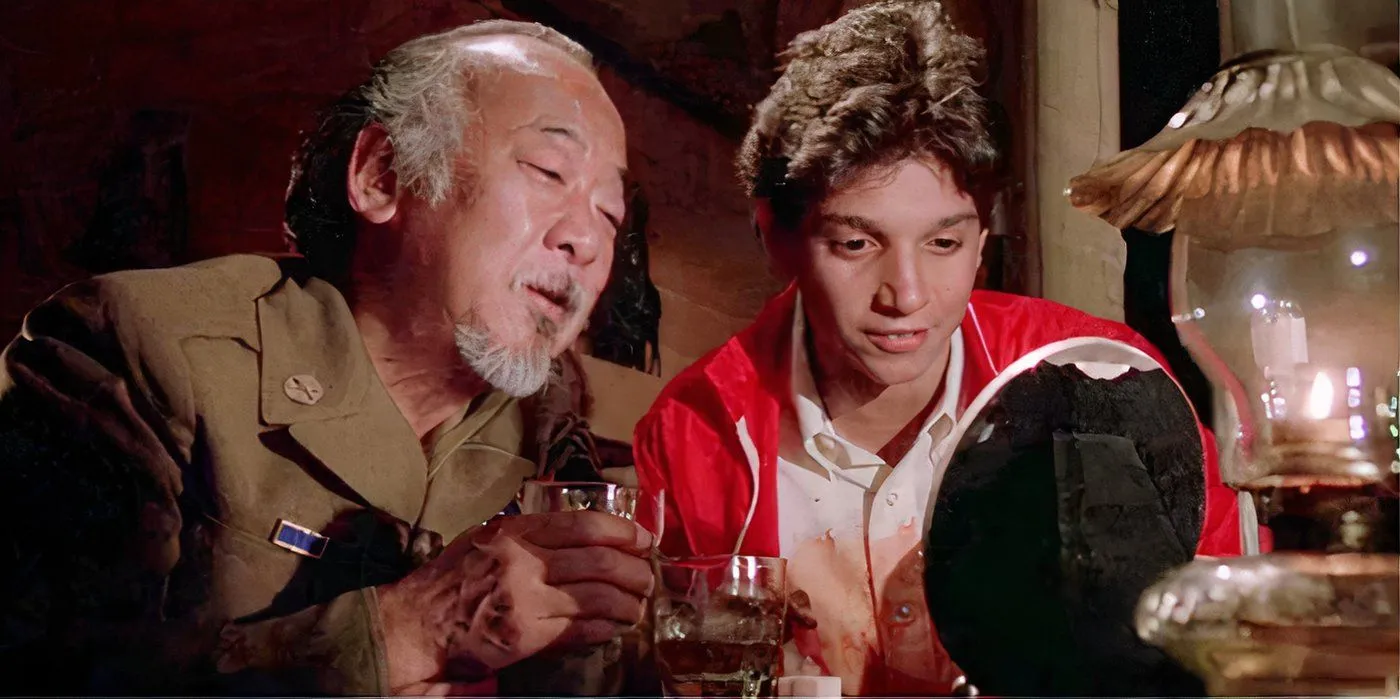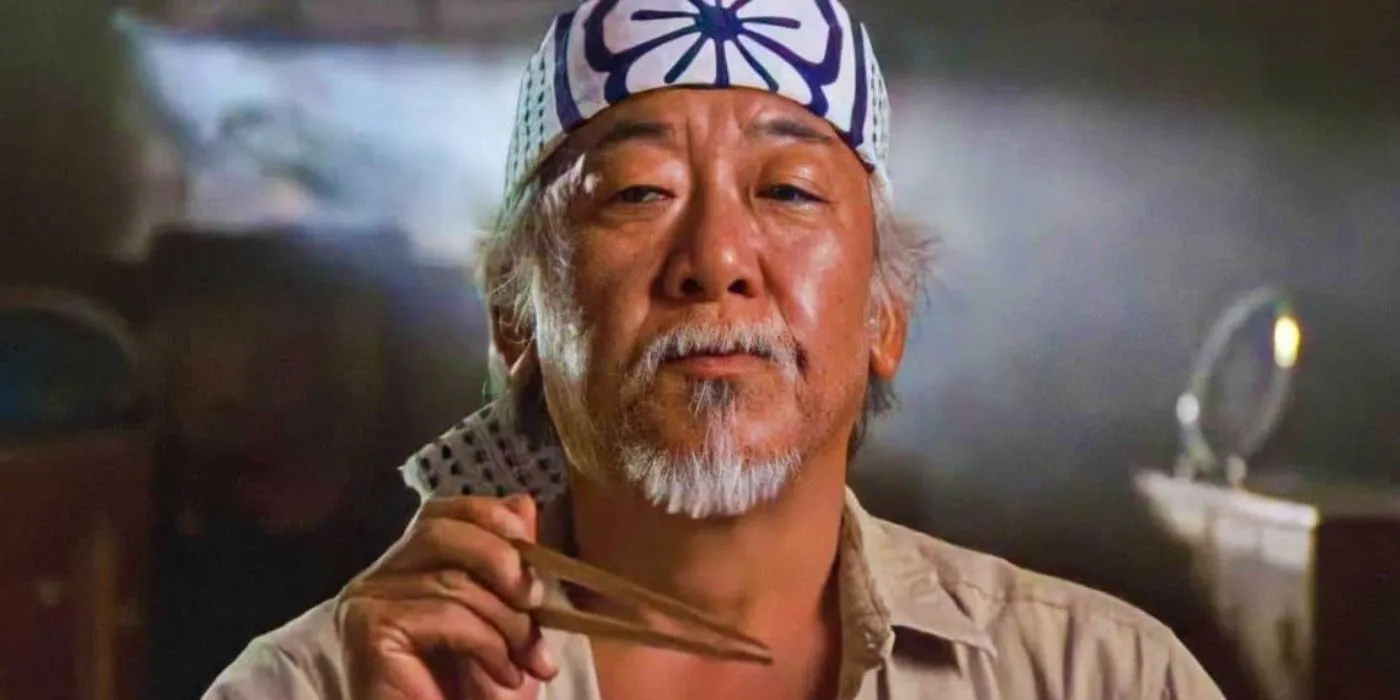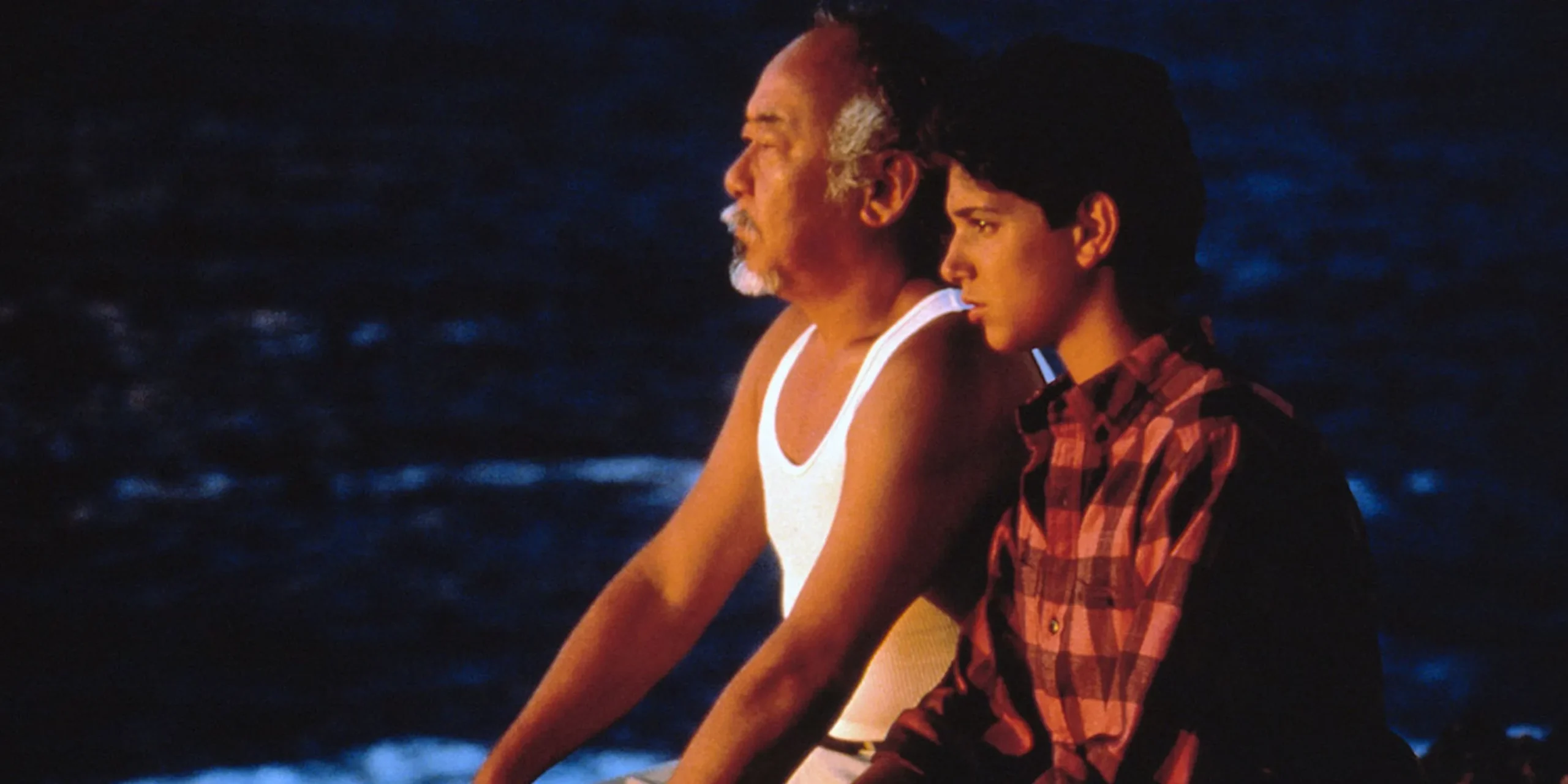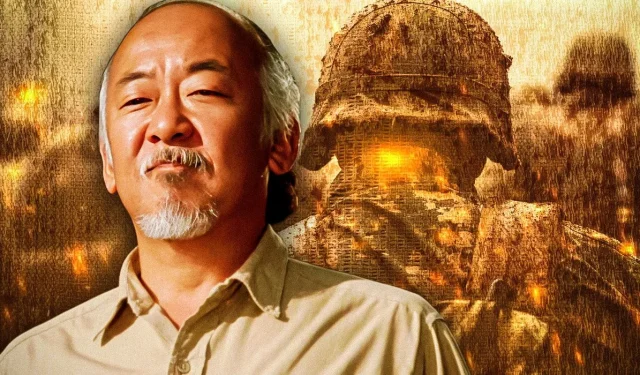Mr. Miyagi stands as a pivotal figure in the The Karate Kid franchise, embodying the ideals of mentorship and resilience. His poignant military history significantly shapes his relationship with his student, Daniel LaRusso. Introduced in the iconic 1984 film, Mr. Miyagi was masterfully played by Pat Morita, and his character continues to influence the present narrative through archival footage in the Netflix series Cobra Kai. While his teachings emphasize defensive martial arts and ethical victories, Mr. Miyagi’s wisdom is deeply rooted in a past filled with loss and trauma, stemming from his experiences during World War II.
Initially depicted as a humble maintenance worker, the layers of Mr. Miyagi’s character unfold throughout the series, revealing his harrowing history as a WWII veteran. His unique teaching methods, exemplified by the infamous “wax on, wax off” technique, have become legendary. However, this surface-level simplicity belies a narrative rich with heartache and sorrow. As The Karate Kid explores his journey from Okinawa to Reseda, California, viewers are introduced to one of cinema’s most tragic yet inspiring figures.
Mr. Miyagi’s Service in WWII
A Proud Member of the 442nd Infantry Regiment

Mr. Miyagi’s approach to martial arts is informed by a profound understanding of conflict and violence. Born in Tomi Village, Okinawa, he developed his karate skills alongside his childhood friend Sato, both of whom were mentored by Miyagi’s father. Their strong bond, however, faced a tumultuous turn when they both fell for Yukie, leading Mr. Miyagi to leave Okinawa and forge a new life as a farm laborer in Hawaii rather than confront their rivalry.
While in Hawaii, Mr. Miyagi married, but destiny took a dark turn with the outbreak of World War II, as he and his wife were interned at the Manzanar Japanese-American camp. This period was fraught with hardship, testing their spirits as they navigated the consequences of war. In a remarkable turn of fate, Mr. Miyagi enlisted in the U.S. Army and served valiantly in the 442nd Infantry Regiment, a unit noted for its bravery against the Axis powers, including Nazi Germany, Fascist Italy, and his ancestral homeland of Japan. These experiences weighed heavily on him, shaping his philosophy and life path.
The Heartbreaking Loss of His Family
Tragic News Delivered via Telegram

Anticipating a joyful future, Mr. Miyagi and his wife had dreams of starting a family, with his wife expecting their first child before he departed for war. However, tragedy struck during his absence. She went into labor and, due to complications during childbirth, both his wife and newborn son perished. Mr. Miyagi received the devastating news through a telegram on November 2, 1944, leaving him to grapple with grief and loss alone, never having met his son or had the chance to say goodbye to his beloved wife.
Pat Morita’s performance as Mr. Miyagi earned him an Academy Award nomination for Best Supporting Actor, solidifying the character’s cultural significance.
Despite his deep pain, Mr. Miyagi lived on solitary, marking his life as a widowed bachelor. Four decades later, he shared with Daniel the sorrow of their deaths, attributing their demise to the lack of medical care at the internment camp. This reflection highlights the broader injustices faced by Japanese-Americans during the war, as detailed in resources like the National WWII Museum.
A Medal of Honor Amidst Personal Loss
His Valor Remembered but Haunting Memories Persist

Although Mr. Miyagi was awarded the prestigious Medal of Honor for his courage in battle, the personal toll of his sacrifices lingered throughout his life. Following the war, he resettled in Reseda, California, where he found solace in simple pursuits—working as a maintenance man, restoring classic cars, and cultivating a serene Japanese garden in his backyard.
While the tragedy of losing his family overshadowed his life story, it was meaningful that Daniel LaRusso, a symbolic son figure, embraced Mr. Miyagi’s philosophies and martial principles. This legacy continues in Cobra Kai, showcasing how wisdom can transcend personal suffering.
In The Next Karate Kid, Mr. Miyagi’s travel to Arlington National Cemetery underscores his commitment to honoring the memories of fellow Japanese-American soldiers who served in the 442nd Regimental Combat Team, ensuring their sacrifices are never forgotten.
Source: National WWII


